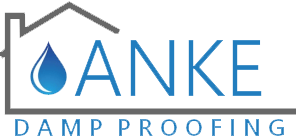How To Become A Damp Proofing Specialist
September 18, 2024
If you’re considering a career as a damp proofing specialist, you’re stepping into a field with growing demand across the UK. As more property owners become aware of the dangers of damp, the need for skilled professionals who can identify, manage, and prevent damp issues has never been higher. In this guide, we’ll explore the steps required to become a damp proofing specialist, the skills you need to succeed, and why this is a rewarding and in-demand career.
Why Choose a Career in Damp Proofing?
Damp proofing is essential in maintaining the structural integrity of buildings and ensuring they remain safe, dry, and healthy environments. As a damp proofing specialist, you’ll play a key role in protecting homes and commercial properties from long-term damage caused by moisture. In a country like the UK, where damp and wet weather are common, this makes for a highly valuable and sought-after skill set.
Choosing a career in damp proofing offers:
- Job Security: Damp proofing is a service that will always be needed, especially in older properties.
- Rewarding Work: You’ll help homeowners protect their homes from structural damage and health issues caused by dampness.
- Career Growth: Opportunities for advancement in the field, including starting your own business, consulting, or becoming a trainer.

Step 1: Understand the Role of a Damp Proofing Specialist
A damp proofing specialist is responsible for identifying, treating, and preventing damp in buildings. Your day-to-day work may include inspecting properties, diagnosing the cause of damp, applying treatments, and advising on long-term solutions to prevent future issues.
There are several types of damp you’ll encounter:
- Rising Damp: Caused by moisture travelling up through walls from the ground.
- Penetrating Damp: When water enters a building through walls or roofs due to external leaks.
- Condensation: Caused by excess moisture in the air and poor ventilation inside the property.
Step 2: Gain the Necessary Skills and Training
To become a damp proofing specialist, you need both technical knowledge and hands-on skills. While formal qualifications aren’t always required to start, having industry-recognised certifications can give you a competitive edge.
Here’s how you can begin your training:
Vocational Courses and Certifications
Several courses are available that will give you the technical skills required in damp proofing. Look for training programmes that cover:
- Damp Proofing Techniques: How to identify and treat different types of damp, from rising damp to condensation.
- Surveying and Diagnostics: Understanding how to assess properties and diagnose damp issues.
- Health and Safety: Learning safe working practices in construction and building maintenance.
Apprenticeships
Another great way to enter the field is through an apprenticeship with a reputable company. Apprenticeships provide a combination of hands-on experience and classroom learning, allowing you to develop practical skills under the guidance of an experienced professional. Working with an expert gives you the opportunity to see real-world cases and solutions, while earning as you learn.
On-the-Job Training
Many professionals start by gaining experience on-site. Starting as a general labourer or working with a building maintenance team can give you valuable insight into the construction industry. Over time, you can specialise in damp proofing by working alongside experienced specialists and learning their techniques.
Step 3: Develop Essential Skills
Beyond technical knowledge, there are several soft skills that are crucial for success in damp proofing:
1. Problem-Solving Skills
Damp proofing specialists must be able to accurately diagnose the root cause of damp issues. Every property is different, so you’ll need to apply logical thinking and problem-solving skills to find effective solutions.
2. Attention to Detail

Identifying subtle signs of damp early can prevent larger, costlier problems down the line. Attention to detail is key in spotting hidden damp issues, inspecting properties thoroughly, and providing accurate reports.
3. Communication Skills
As a specialist, you’ll often need to explain complex damp issues and solutions to homeowners or clients who may not be familiar with construction terminology. Being able to clearly and effectively communicate your findings is essential.
4. Time Management
Efficiently managing time across multiple projects will help you keep on top of your workload, ensuring timely and effective solutions for your clients.
Step 4: Gain Experience and Build Your Reputation
As with any career, building experience is essential. Start by working on smaller projects under an experienced damp proofing specialist. Over time, as you gain confidence and expertise, you can take on more responsibility and even start managing your own projects.
Networking and Industry Involvement
It’s also important to build connections in the industry. Attend trade shows, workshops, and events related to construction and damp proofing. This not only keeps you updated with the latest techniques and products but also helps you form valuable connections with other professionals in the field.
Becoming a Damp Proofing Specialist with Anke Damp
Becoming a damp proofing specialist offers a stable, rewarding career with opportunities for growth. Whether you start with formal training, an apprenticeship, or on-the-job experience, the key to success lies in developing your skills, gaining experience, and building a solid reputation in the industry.If you’re interested in taking the first step towards a career in damp proofing, contact Anke Damp Proofing to learn more about our training programmes and professional opportunities. With the right training and dedication, you can establish yourself as a trusted specialist in this thriving industry.



